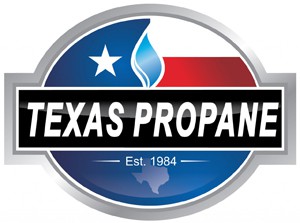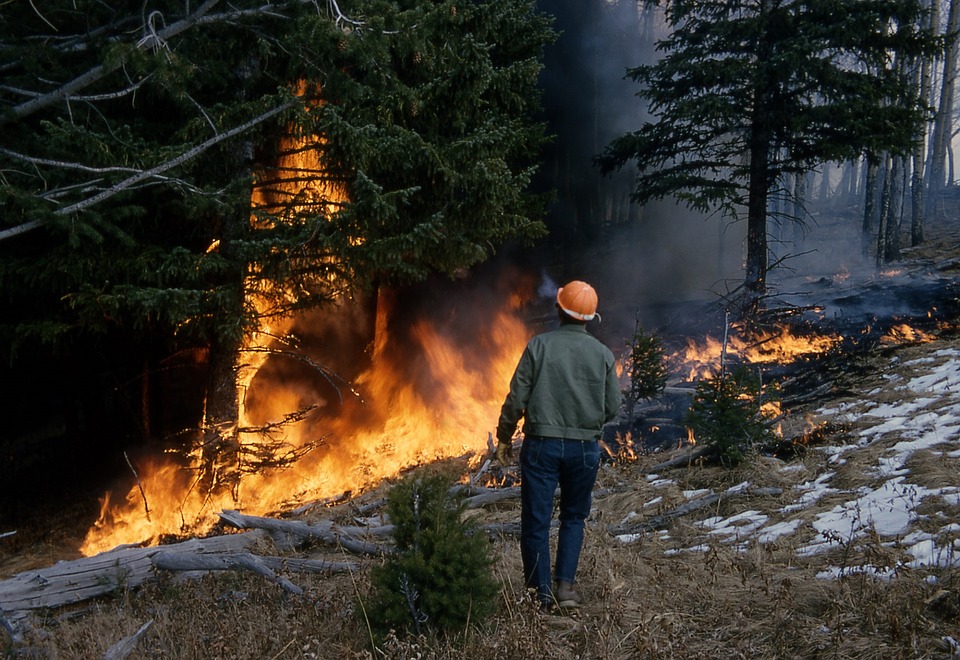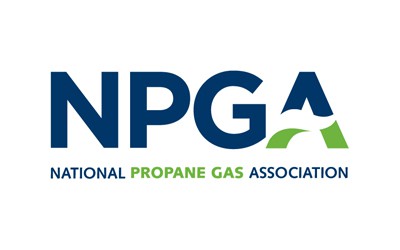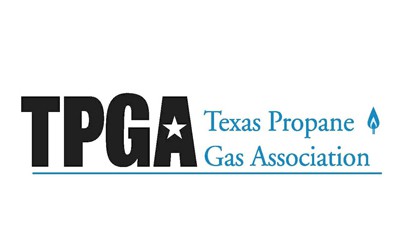Propane Tanks and Fire Protection
The best way to prepare for a wildfire is in advance. It is crucial to be aware of drought, fire weather watches and fire warnings if your propane tank could potentially be affected. Keeping the surrounding area of a propane tank clear of debris and anything flammable goes a long way in wildfire protection. Making sure that the tank is up off the ground and properly installed on blocks also assists with preventing direct flame impingement upon the propane tank itself. It is ideal to keep a 10′ radius around propane tanks clear of anything that may be used as fuel for a fire, including long and uncut grass, leaves, trash, tires or anything combustible that could be consumed by a fire. Additional steps that can be taken to prevent flame impingement on your propane tank include the following or a combination of:
- Scalp (cut the grass/weeds closely) the area around a tank exposing bare ground.
- Use weed/grass killer around the tank after cutting vegetation to the surface.
- Spreading base material or gravel around the tank to prevent vegetation growth.
- Ensure the propane tank color is reflective and free of rust to avoid initial pressure buildup.
- Ensure that all propane tank distance requirements are satisfied.
Propane cylinders should be stored in a manner similar to that of a large residential propane tank. They should be sitting on a level fireproof surface with the surrounding area clear of debris, tall grass or other combustible material. Since cylinders are portable, they can be moved easily to a new location in the even of a grass fire or wildfire.
Propane Tanks, Fire Weather and Fire Danger
During times of drought and/or low humidity, chances for grass fires and wildfires increase. It’s during these periods that all residents subject to fire danger stay alert of conditions that may impact them and their homes. Watching television and listening to radio stations to stay informed will help keep residents aware of any approaching fire threat. If you have been ordered to evacuate or are in the path of a fire, there are important actions to take prior to leaving the area. These propane specific steps should only be undertaken if time allows and always follow fire evacuation orders as given by authorities and safety personnel.
- Close the propane tank service valve by turning the handwheel clockwise.
- Close all appliance valves and gas valves inside the house(s) or structure(s).
- Do not move propane cylinders into a garage, indoors or anywhere near a house or structure.
- Move propane cylinders away from any house or structure to an area where fire impact will be minimal.
- Contact your propane company to inform them of your evacuation status after leaving the area.
In the case of an approaching fire, all valves should be closed to minimize possible fire damage to the structure(s). If propane valves are left open, escaping LP Gas may cause increased damage to property. Safety relief valves that open during a fire may intensify damage which is one reason why tanks must meet LP Gas container distance requirements and propane cylinders should be moved away from a home or structure.
Propane and Returning Home After Wildfire
If you do have to evacuate due to a wildfire, there are specific steps to be taken upon returning to your home. Hopefully, your home will have sustained no damage and returning to your residence will be a relieving experience, but keep in mind that activating your propane gas supply needs to be handled by the propane company as your LP Gas tank system will need to be inspected. The following factors should be considered before returning home.
- Do not drive your vehicle directly up to your home following a brush fire or wildfire.
- If you smell gas, leave the area immediately. Do not attempt to inspect the situation yourself.
- Do not open any appliance valves, gas valves or propane tank service valves.
- Contact your propane company to inform them of your return.
Propane companies, such as Texas Propane, commonly monitor grass fires and wildfires in our service area and if called about an affected customer or customer propane tank, we will promptly respond. Calls to your propane company concerning propane tanks and grass fires (or any fire) are of the highest priority and are handled accordingly. In addition, because the flow of gas was interrupted when the tank was turned off, a propane system leak test is required. Contact us here at Texas Propane with the link below for more information!








One Response to How to Prepare for Wildfires with Propane